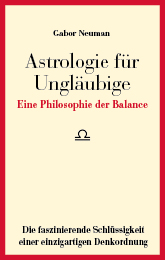Leserbriefe zur Rezension
Phraseologie eines Psychoanalytikers
Tilmann Mosers Versuch einer psychoanalytischen Lektüre bekannter Romane scheitert
Von Max Beck
Michael Roloff schrieb uns am 05.12.2013 Allow me to comment in English and focus on one instance where Dr. Moser (an ex-author of mine, in translation, YEARS OF APPRENTICESHIP ON THE COUCH) focuses on a character in a novel: Gregor Keuschnig of DIE STUNDE DER WAHREN EMPFINDUNG. There is nothing particularly wrong nor original in categorizing this suicidally panicked character as a "border line" case - after all, Handke, induces a similar state in his reader, and the book, artistically, can be regarded, in Benjamin's words "the work of art is the death mask of the experience.' Handke, who makes it a point to avoid easy categorizations, does not describe or try to explain what if any origin of his state of mind - as a matter of fact, so what if Keuschnig had run around calling himself a border line case? He might have had a laugh in as much as that would have helped! Or even if he had realized that the reason he is in this state of mind, most immediately, without going back to the the character's whatever childhood traumata, "it's because the bitch left me and now I have to take for a child." The point is, the character is wounded, as a matte of fact, Moser is eager to help the author, whose way of dealing with a crisis, that lasted several years, was to ... write it out of his system, and not leave it on the couch! (which Handke actually sought out briefly, vide GEWICHT DER WELT). Keuschnig is unlikely to be helped if he told himself, accurately, I am suffering from a narcissistic wound, typhus of the soul let's call it, perhaps naming helps a little, but it is not the cure! Without going to the length that I did, who was Handke's first English language translator, and who knew him during that critical period, but only subsequently trained as a psychoanalyst who then devoted himself to "the Handke case" |










